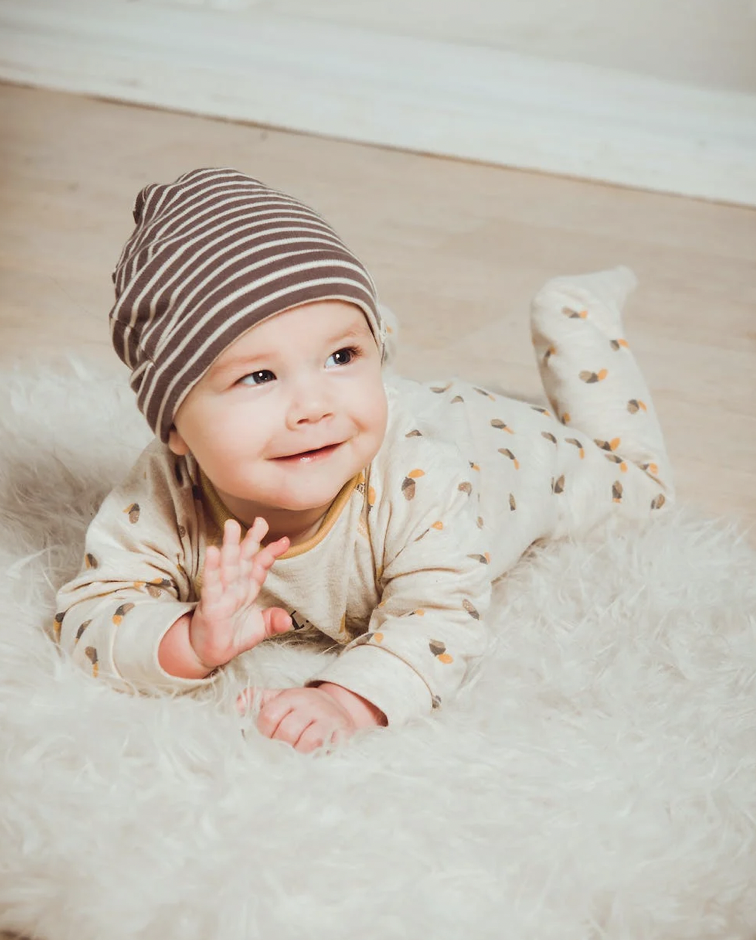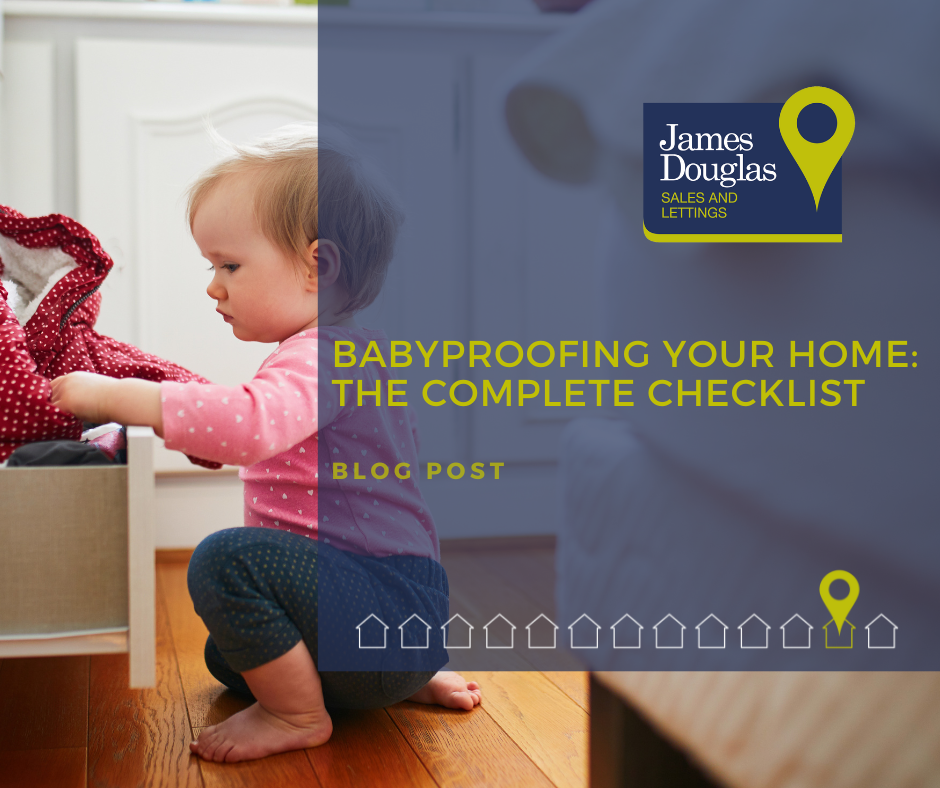Babyproofing Your Home: The Complete Checklist

When looking for your new home in Cardiff with a baby in tow, it’s important to prepare your home to prevent any potential accidents or injuries. Read on to see our full guide in baby proofing your home so that you can keep your child safe in confidence when looking for your next home..
Baby gates
Starting with the most obvious, make sure you have a secure baby gate at the top and bottom of the stairs. It is important to remember that pressure fitted gates are not suitable for the top of the stairs due to the potential of them being able to move under pressure. The best option is a gate that is securely screwed into the wall. However, a pressure fitted gate is suitable for the bottom of the stairs, as well as doorways where there isn’t a downward drop to a lower level of the house. When viewing a property, make sure to check the staircases to see is the baby gates can be fitted securely in place.
Barriers
There may be places in the home where a baby gate isn’t suitable but still needs blocking off, such as a fireplace, or a pond in the garden. Here you should use a barrier like a small fence or pen to block any hazardous areas. It’s important these fences are securely fitted to make sure they are not able to topple over. When viewing a property, keep an eye out for any hazards that may require additional barriers and guards and factor these in to your budget.
Lock away dangerous items
This one may seem like a no-brainer, but it’s important to keep items like medicines, knives, and chemicals locked away from prying hands. Although you might assume a high cupboard is enough, toddlers can – and do – climb, so it’s important there is a lock on cupboards and drawers to be extra safe.
Fit safety mechanisms
Make sure there are finger guards on door hinges, and use door handle stoppers to prevent doors locking and trapping fingers. You should also fit covers on sharp corners to lessen any injuries if they bang their head. Window restrictors on large, open windows are also important to consider when baby proofing your house.
Watch for electricity
Electricity can pose a serious threat to a child and plug sockets are low to the ground, abundant, and easily accessible. It is paramount that empty plug sockets are secured with a lockable cover, making sure wires are tied up, out of the way of babies, and cannot be pulled down. Chewed cables can pose a risk and can also be a strangulation hazard. Make sure you are checking plug positions and could consider moving some of these out of reach of children.
Remove plastic bags
It is vital that you ensure plastic bags are completely out of reach of babies’ prying hands, especially as they are items that are often in the home thanks to shopping or online orders. Remember: plastic bags pose a suffocation risk.
Secure heavy items
Things like TVs, static cupboards, and wardrobes are places a baby may try to climb to. And because they are not secure, they can easily fall. To prevent this from happening, make sure they are secured to a wall. Look for things like integrated appliances and fitted wardrobes in a home as these all pose less of a risk to little ones.
Install/check smoke detectors
Double check your fire and carbon monoxide detectors are fully working and have fresh batteries. It is recommended that smoke alarms should be tested every Tuesday (think test it Tuesday). In rented accommodation, the legislation has changed and there is a requirement to have certain electrical certification and interlinked smoke alarms installed. Make sure you check these if moving whether you are buying or renting and ensure they comply with the most recent legislation.
House plants
With house plants becoming increasingly popular, it’s important to remember some house plants may be toxic to humans and pets, so make sure the plants are non-toxic or completely out of the way. Ceramic plant pots are also heavy and could also cause injury if pulled down.
Bathroom
The bathroom is probably one of the most hazardous places in the home next to the kitchen, so it’s important to make sure the bathroom is not accessible to a baby at any point. Keep the toilet seat closed, and hide any plugs to prevent drowning.
Pets
Keep dogs/cats and babies separated at all times. Animals in our home may feel anxious and uncomfortable around a baby, especially once they start to become mobile. This may cause a pet to act on its emotions and accidentally injure a baby through a bite or scratch. Children aged under 5 are most likely to present with injuries to the head and neck which increases the risk of severe or even fatal injury. Contrary to cute internet posts, most pets won’t appreciate a baby in the home and it’s better to be safe than sorry and give them both their own space.
Each person’s house and the items then are unique to them, so there may be some specifics in your own home that could pose a risk not mentioned in this article. It’s always best to take proper precautions before your baby is moving around on their own and be a step ahead of any preventable injuries.
If you have outgrown your home with little ones and are looking for your next family home, keep an eye out on the ‘baby friendliness’ of a property whether you are looking to buy or rent, these small changes can help put your mind at ease!
Ready for the next move? Contact us today.

